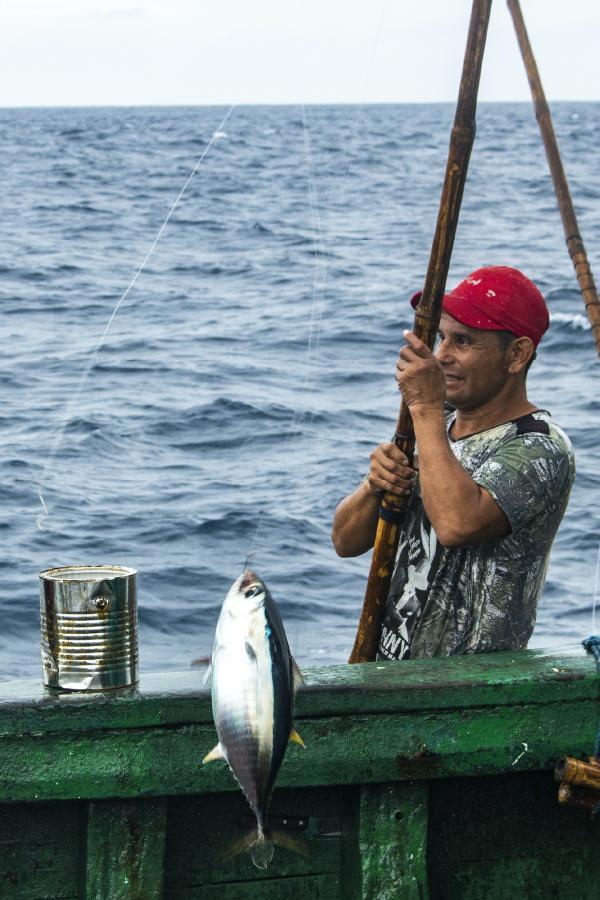
José Augusto López Zambrano is a third-generation fisher from the Ecuadorian port city of Manta.
At 41, the father of two has been pole-and-line fishing for tuna for three decades, a method that requires him to throw live bait into the water to attract the fish before lowering his lines into the water to catch it.
“I have dedicated myself to this activity all my life,” says José, who is president of the local Manta Pole-and-Line Fishers Association.
In his father’s day, their vessels were built for coastal fishing because tuna was found close to shore. But that has changed now.
“Fewer tuna come to the coast, so we have to go further and further out,” he says. For one, increased competition has put pressure on fish stocks. But rising water temperatures due to climate change also play a role, according to José.
“The most important thing fishers can do to preserve ocean resources is to recover their traditions,” he says. Essential examples he gives are respecting biological rest periods and minimum fish sizes, so fish are not caught before they are mature enough.
“This is a matter of conscience: what good is it to me to capture a two-pound tuna, knowing it hasn’t reproduced yet? It will only mean scarcity later.”
Gear matters too, he says.
“Why use a net, which will kill many other species needlessly, when I can use a pole, which is selective?” he explains.
“Many fishermen don’t think this way. We do and it comes from the way we were educated by our families.”
With the support of FAO’s Coastal Fisheries Initiative, the Manta fishers have obtained a Ministerial Agreement that recognizes, regulates and supports their sustainable fishery. They also obtained a Fair Trade Certification that will help them market their products to environmentally conscious consumers.
People are nourished by two sectors, says José: “fishing and agriculture.”
“If there is no fishing, there is no food. We must take care of this home we call the ocean, because it is the one that provides us with food.”
The Manta fishers benefited from the Coastal Fisheries Initiative financed by the Global Environment Facility. It was implemented in Ecuador by the United Nations Development Programme (UNDP), Conservation International and the World Wide Fund for Nature (WWF), under the leadership of the Ministry of Production, Foreign Trade, Investment and Fisheries.